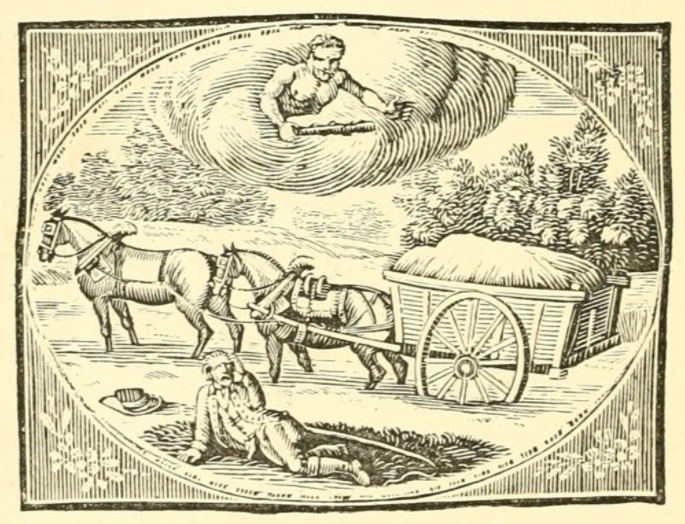προσδέχομαι ~ προσδέξομαι ~ προσεδεξάμην: accept, receive
ἔρχομαι ~ ἐλεύσομαι ~ ἧλθον: come, go
διώκω ~ διώξω ~ ἐδίωξα: chase, pursue
πονέω ~ πονήσω ~ ἐπόνησα: work hard, toil
χαίρω ~ χαιρήσω ~ ἐχαίρησα: rejoice, be glad
Γῆρας προσδέχου.
Εἰς θεῶν ὦτα ἤλθεν.
Διώκει παῖς ποτανὸν ὄρνιν.
Βίος ἐστὶν ἄν τις τῷ βίῳ χαίρῃ βιῶν.
Τῷ γὰρ πονοῦντι χὠ θεὸς συλλαμβάνει.
And now, some commentary:
Γῆρας προσδέχου.
Accept old age.
You see the middle imperative here, προσδέχου, and it takes a direct object: γῆρας (neuter accusative). This is one of the Delphic maxims recorded by Stobaeus.
Εἰς θεῶν ὦτα ἤλθεν.
It has reached the ears of the gods.
As Erasmus explains, this saying refers to some kind of criminal deed or shameful secret that, despite being concealed from mankind, has reached the ears of the gods.
Διώκει παῖς ποτανὸν ὄρνιν.
The child is chasing a winged bird.
The saying is invoked by the chorus of Aeschylus's Agamemnon. The saying refers to something like what we call a "wild goose chase" in English, a futile endeavour or something even more sinister, leading to disaster. The chorus goes on to invoke Paris's theft of Helen a few lines later, so the proverb appears to be associated with a presumed fable, otherwise lost to us, about a child who, in pursuit of a bird, somehow brings destruction on a city as Paris brought destruction on Troy.
Βίος ἐστὶν ἄν τις τῷ βίῳ χαίρῃ βιῶν.
Life is someone rejoicing in life as they live it.
In other words, life is worth living when you enjoy it, when you rejoice in that life: τῷ βίῳ χαίρῃ. You can combine this with the saying above: accept old age, and just keep on enjoying life! This is one of those one-liners of Menander, so it's iambic:
Βίος ἐσ|τὶν ἄν || τις τῷ | βίῳ || χαίρῃ | βιῶν.
Τῷ γὰρ πονοῦντι χὠ θεὸς συλλαμβάνει.
The god also helps the one who is making an effort.
Or, as the saying goes in English, "God helps them that help themselves." The word χὠ is και-ὁ: the vowels contract and then the aspiration causes the κ kappa to become chi, χ. There is an Aesop's fable that famously illustrates this moral: when a man's wagon got mired in the mud, he prayed to Heracles to rescue him, but Heracles told him to put his shoulder to the wheel first, and then he would come to his aid. Here's an illustration:

And here's a random proverb and a random LOLCat too:
No comments:
Post a Comment